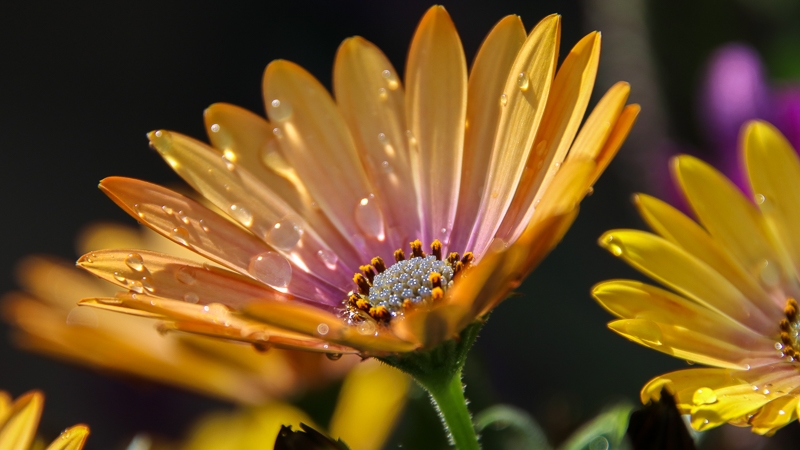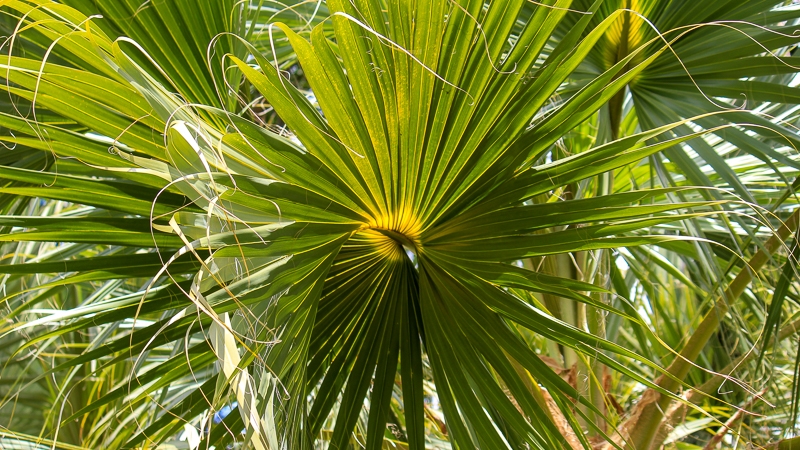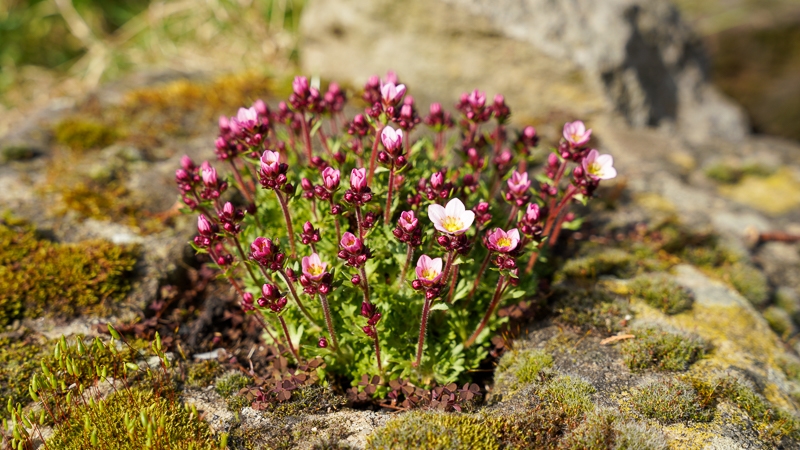DO PLANTS HAVE CONSCIOUSNESS?

A piece I read today began by noting that suggesting plants may have a form of consciousness is 'controversial' or 'wild'; it shouldn't be.
What does consciousness mean?
A review of the many definitions the scientific community attributes to 'consciousness' would be too long (and boring) for this post. You don't need to know exactly what it means to consider whether plants might have some form of it.
If you do want to know exactly what it means, tough luck, because there isn't a consensus. It's sufficient to understand consciousness as an organism acting dynamically in a goal-oriented way in response to anticipated changes in the environment.
There are other relevant concepts too, like sentience, which is the ability to experience sensations and feelings. Cognition is another: the process of acquiring understanding through thought, experience, and the senses.
I think the important thing is not to get too human-centred in your interpretation of what these terms might mean for non-human or more-than-human beings. Don't get wrapped up in debates about an imagined hierarchy of forms of awareness that has been thought up by people who think humans are the pinnacle of the natural world (we're not).
Some objection to the suggestion that plants might have a form of consciousness comes in the form of decrying anthropomorphism. How silly to suggest that plants might have feelings! Ironically, I think these people are applying anthropomorphism to the very concepts themselves. Humans use brains to process sensations and make decisions, but why should that mean it's the only way to do so? We are familiar with the ways that we experience consciousness, but why does that mean that plants must experience it in the same way?

Thinking about what plants do
Let's forget the question of how 'absurd' it might be to think plants have consciousness and recap some of the things we know about the way they live.
We know that plants communicate, both above and below ground. They can tell each other about impending problems, like aphids. They can even communicate with non-plant beings, luring pollinators after detecting their vibrations or releasing chemicals that make caterpillars start eating each other instead of the plant.
We also know that plants are generous. They share nutrients and water with their neighbours, dishing out what they have in surplus and taking what they need from others.
Plants recognise each other. They know their own offspring and give them favourable treatment. They recognise when a neighbour isn't part of their lineage.
Any kid who has traipsed round a garden centre knows that some plants react to touch. They snap closed on prey, or curl leaves away from prying fingers. They know when they're being touched and move in a way that helps them achieve a goal associated with that touch (catching a fly or getting away from a meddling two year old).
What about the movements plants make? We know that if we knock a sunflower over in the garden it will still crane to face the sun. We've seen time-lapse videos of climbing plants ascending poles, so we know that they decisively lurch towards a pole even before their circling tendrils first wrap around it; they know the pole is there.
How about plant personalities? Have you ever had a pair of houseplants that looked exactly the same but behaved differently? We readily accept the idea that our pets have individual personalities (indeed, if you suggest they don't you're liable to be called cold-hearted) yet still reject the idea that wildlife and other forms of life, like plants, might have personalities too.
Research has shown that some plant behaviour is down to individual disposition (i.e. personality) rather than genetics or environment. Plants that have been domesticated tend to be less wily than wild plants because we've bred them to be docile the same way we've bred dogs, but occasionally individual domesticated plants will display the cunning and independent behaviour of their wild sisters, without undoing any of the genetic changes of domestication.

What does all this mean?
Just sit with that knowledge for a while, before you try to apply it to the debate of whether or not those behaviours fit into the ever-moving boundaries of words we want to apply to plants, like 'consciousness' and 'cognition'.
Look at a tree outside your window and consider its life. It is communicating with its neighbours. It is choosing to give away nitrogen, because it has some to spare. In return, the tree next door passes along some water. A sapling waves in the breeze at the base of your tree, supported by mum above. Both the mother tree and the sapling know that they're related. They also know that the tree next door isn't related to them but they share the nitrogen all the same. When aphids descend, an SOS message flashes between the trees and they produce chemicals to make their leaves taste bad. Strength in numbers.
What are scientists doing?
Some scientists, like Monica Gagliano's team at Southern Cross University in Australia are looking at how plants learn and remember. They've taught plants to associate breeze with light in the same way that we teach animals to associate a noise with food. The plants grow towards the breeze after they learn to associate it with sunlight, even when the breeze is provided without the sunlight.
Others are testing plants' reactions to things we usually associate with conscious beings. Paco Calvo at the university of Murcia in Spain likes to show people how plants react to anaesthetic, going to sleep just like we do.
Calvo's team works with electrical signalling in plants. Our brains and nervous systems work with electrical impulses and plants produce a lot of electrical activity in their vascular systems. They even produce lots of signalling molecules that we recognise, like serotonin. The patterns that the team have seen suggest that plants have unique, subjective experiences.
The hope is that we'll develop plant MRI or PET scanners so that we can monitor plant activity in the way that we monitor human brain activity.
The sceptics
Most of the scepticism of the idea that plants possess sentience or consciousness can be summed up as follows: you can't show for sure that [insert amazing plant behaviour you've researched] isn't caused by genetic, instinctive, or environmental factors rather than sentience, cognition, or consciousness.
There are nuances of course - some people agree it's well established that plants are sentient, but draw the line at consciousness. Others find fault with the methodology or repeatability of specific experiments.
Some of this criticism is no doubt justified, and scientific debate is healthy and necessary. But I can't help feeling that the rejection of the idea that a non-animal being might have consciousness is self-serving.
Natalie Lawrence, in the article in the New Scientist that inspired this post, hits the nail on the head when she says 'if the awareness at the centre of our conscious experience is something we share with all other living things, even plants, we might question whether humans are quite as special as we like to think'.
When I was at Cambridge, I once shared an article criticising the over-representation of privately educated students at the university. It was met with denial and outright hostility by many privately-educated fellow students. I couldn't understand this, until a friend explained that for many people, acknowledging that it's harder for others to achieve what they've achieved makes their own achievement seem a bit less special, so they push the idea away.
It's not quite a parallel, but I get a similar feeling when I see staunch denials that non-human beings might think, feel, or behave in ways that we hadn't previously appreciated. When these discoveries do little to threaten the imagined hierarchy that puts humans above every other creature on Earth they're usually quietly accepted or rationally challenged. It's when discoveries might force us to admit that we're not all that special that they're dismissed as 'crazy' or 'absurd'. We - humans - want to think we're better. We want to think we're special. And we don't take kindly to science that shows that we might not be.

What do you think?
I'd love to know what you think. I'm particularly interested in why people might think it's absurd to suggest that plants might have sentience or consciousness.
Given what we know about plants (and how little of the whole that knowledge represents), how can we say that it's 'absurd' that they might have consciousness?
It might feel absurd if you equate consciousness with them behaving, thinking, and reacting exactly like humans. But taking a less human-centric view of consciousness, why on Earth wouldn't plants and other non-animal beings have consciousness?
What would it mean to accept that plants have consciousness?
Other than taking us down a peg (which would be no bad thing), how would acknowledging that plants might have a form of consciousness affect the way we behave?
It wouldn't mean we'll all starve because we don't want to eat a carrot with feelings. We've known that pigs and cows have feelings for a long time and still happily eat them with no remorse so there's no place for catastrophising.
Here's what I think it would mean. I think we'd connect to the natural world more. Standing beneath a beech tree and marvelling at how it and its neighbours make the decision to drop their nuts at the same time, without mentally pushing away the idea that plants might make decisions, is special.
So is having more respect for the natural world. We don't need to say 'we don't know enough to be sure' and then use that as an excuse to go on abusing the world around us. We can say 'we don't know enough to be sure, but we know that something amazing is going on' and sit in reverence.
I think it would teach Western thinkers respect for Aboriginal and other traditional ways of thinking about the natural world. Such teachings were often based on ideas of kinship and respect and were pushed aside by colonial powers and largely ignored by Western science. Much of the wisdom in those beliefs is slowly turning up in scientific results, centuries after it was already known by some communities.
There are human benefits in all of this. Connection to nature makes us happier and healthier. Showing respect does too. Feeling awe and reverence is amazing for our mental health.
Practically, getting over ourselves and acknowledging that plants might think, feel, perceive and make decisions in ways we previously didn't appreciate could bring us forward leaps and bounds in our approach to agriculture and even in fields like biorobotics.
We depend on plant life, just like every other animal on the planet. If we have a greater understanding and respect for it, that can only be a good thing.
What if we make the world better for no reason?
Knee-jerk rejections to ideas like plants having consciousness remind me of a great sketch by political cartoonist Joel Pett. At a climate summit, in front of a presentation listing the benefits of taking action on climate change, an attendant asks 'what if it's all a big hoax and we create a better world for nothing?'
If we're not sure yet that plants have consciousness, there's no harm in being open to the idea that they do. There's no harm in believing plants have consciousness, regardless of what their actual experience is like. We may never know.
It's the outcome that matters. If believing that plants have consciousness (as so much of the evidence suggests) results in a better relationship with our leafy companions, well, let's stop arguing about semantics and just get on with improving our connection to and understanding of plants. Let's stop erecting barriers between ourselves and other species.
Share with your friends
Subscribe to learn more
Join me in exploring our natural world and cultural heritage as we learn how to protect and restore it. Get notified on my latest posts and a monthly newsletter on wider conversation topics for us to chat about.
Recent Posts
If you enjoyed this one, then you might like these too.